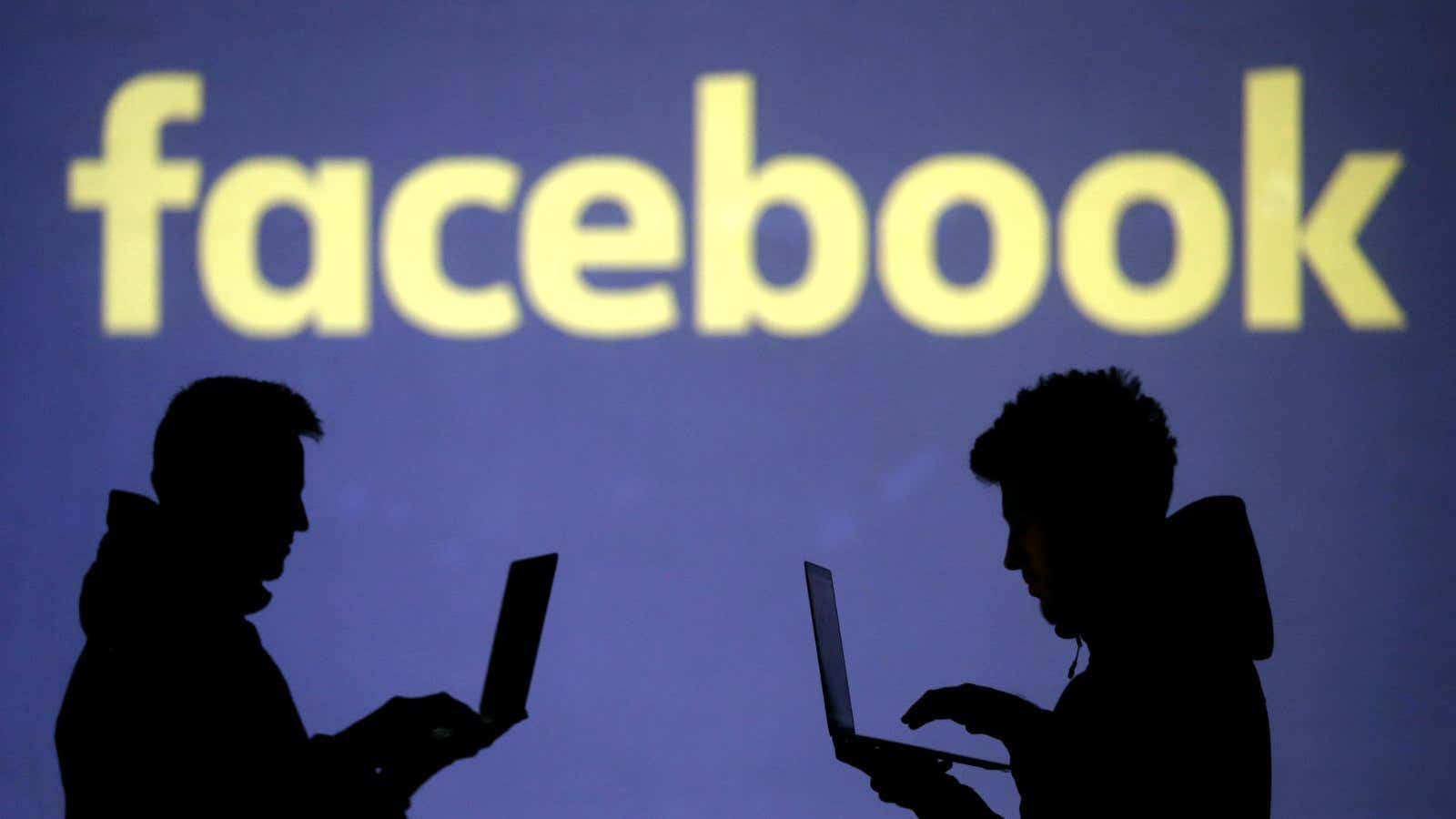Facebook’s Libra is starting to sound more like a cancer.
The cryptocurrency, announced by the social media giant on June 18, could reshape the global pecking order. The Libra may “demote the power of nation states,” warned Claire Finkelstein, a national security researcher at the University of Pennsylvania Law School.
In particular, smaller countries risk losing control of their economies as Facebook’s money takes root. Libra is expected to launch in 2020.
The Libra may undermine central banks in the developing world, assessed Chris Hughes, a Facebook-cofounder-turned-critic. Their power, he said, could be redistributed “toward multinational corporations and the central banks of the largest economies.”
Allow me to explain. Facebook’s digital currency will be underpinned by reserves of stable currencies, like the US dollar, the euro, and the yen. By making a digital version of these strong currencies available in developing countries, Facebook would provide global citizens an alternative to their local currencies.
Hughes elaborated on the potential dangers of this plan in an op-ed for the Financial Times (paywall):
[Libra’s] sponsors are right that a liquid, stable currency would be attractive to many in emerging markets. So attractive, in fact, that if enough people trade out of their local currencies, they could threaten the ability of emerging market governments to control their monetary supply, the local means of exchange, and, in some cases, their ability to impose capital controls.
Imagine if the Libra became the most popular currency in Nigeria, Turkey, or Syria. The immediate effects on their local economies might be difficult to envision (e.g., transacting on cellphones), but the longer-term impact on their governments would be undeniable.
Instead of relying on their own central banks for monetary policy, these nations might be forced to adhere to Federal Reserve and European Central Bank decisions. Governments in developing countries could lose their power of taxation, and perhaps their legitimacy. Of course, I’m painting a bleak picture, but we must question whether it’s right for Western organizations to (indirectly) recolonize the East.
More developed countries could lose out, too. As far as we know, none of the countries whose currencies might be included in the Libra basket opted into Facebook’s plans. If the Libra increases their financial stability risks—or exposure to foreign exchange volatility—they might be unable to escape the situation. If we follow the money, it seems likely that Facebook will pick Swiss banking partners to custody the Libra’s cash reserves. Already the Libra Association, a group of 28-plus organizations that is meant to manage the reserves, is being established as a nonprofit organization in Geneva.
Central banks aren’t the only losers here. In a world where the Libra becomes the dominant currency, what would happen to the global economy during Facebook earnings announcements? And what about when Facebook—or Calibra, its digital wallet service—goes down? A five-week government shutdown cost the US economy $11 billion. How much would a Libra disturbance cost? Sure, it’s extrapolating, but these are (weirdly) legitimate concerns.
Instead of looking at what could go right, the Libra’s leaders and government officials around the world must look at what could go wrong. Providing financial access to people around the world seems like a positive evolution for humanity—I even lauded Facebook’s plans to democratize banking (Quartz member exclusive)—but it must be done in an extremely thoughtful manner.
As secure as Facebook claims the Libra will be, blockchain-based currencies have repeatedly demonstrated vulnerabilities. For instance, ethereum split into two competing networks after an enormous theft, and Zcash, a privacy coin, suffered from an infinite printing bug. There’s also a myriad of issues for the on/off-ramps where cryptocurrencies are transacted, such as exchanges, wallet providers, and password managers. Not to mention that the Libra presents a clear target for tech-savvy terrorists, pooling the risk of global disaster.
Indeed, by succeeding, the Libra could fail for society.
“The worst-case scenario is that those most marginalized in society become further marginalized, locked out of the financial system, unable to pay rent because a status update flagged them as a sex worker; unable to access healthcare because Facebook flagged their identity as fraudulent,” said Sarah Jamie Lewis, director of the Open Privacy, a Canadian nonprofit. It would be “business as usual for Facebook,” she said, “but combined with the power…to destroy lives, wrapped up in the language of liberty, consent, and decentralization.”
To be certain, like Facebook itself, the Libra could do a lot of good for the world. But it’s the unforeseen consequences that our leaders must scrutinize. The global economy is at stake.
